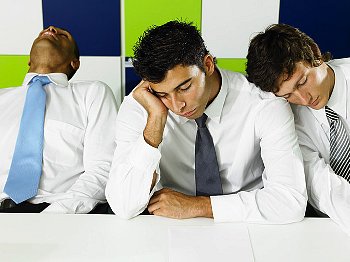
It goes beyond just liking sleep and sleeping in on a Saturday morning.
Sleep has been tied to a series of health conditions, namely cardiovascular conditions, which can be caused by sleep apnea or snoring. Sleep apnea is when a person’s breathing is interrupted while asleep which means that there may be a lack of oxygen to the brain and heart.
The amount of time a person sleeps, especially if it is too short of a time, has been linked to obesity, hypertension, cardiovascular disease and increased mortality from all causes.
When the body is at rest, the body relaxes bringing blood glucose levels and blood pressure levels down to normal. The body regulates itself without the use of any medications while sleeping. Sleeping a good amount every night also prevents unnecessary weight gain. When people are tired, they are most likely going to eat high-sugared, greasy foods and caffeinated drinks to keep themselves up and awake.
Fun fact: Your body will not let you sleep any longer than what it needs.
Sleep in America Polls
Each year the National Sleep Foundation announces their Sleep in America poll results, which also starts their awareness week and ends on Daylight Saving Time, where we unfortunate Americans lose one hour of blissful sleep.
Last year, the NSF released it’s sleep poll which touched on Americans at work. About one in 10 Americans said that they fell asleep in an inappropriate place like driving or while in a meeting. It was also found that a significant amount of transportation workers, such as pilots and train operators, did not get enough sleep nor did the job allow for enough sleep. Approximately 44 percent of train operators and about 37 percent of pilots report that their work schedules do not allow enough time for sleep. This is compared to 27 percent of non-transportation workers and 27 percent of truck drivers, along with 20 percent of bus, taxi and limo drivers.
Latinos and Sleep
In 2010, it was found that there were differences among ethnicity when it came to sleep. The NSF’s poll found that Latinos are kept awake by financial, employment, personal relationship and/or health-related concerns. Latinos have been known to worry about a variety of things. If you’re Latino, you know your mother is one of the worriers you can’t calm for anything, thinking of the worst possible situation each time something comes up.
However, this report showed similarities between Latinos and Blacks, stating that at least 38 percent of Latinos and 33 percent of Blacks report to have these concerns disturb their sleep at least a few times a week compared to 28 percent of Whites and/or 25 percent of Asians.
The following was also reported by the National Sleep Foundation’s poll:
- Moreover, about two in 10 Latinos (19%) and Blacks/African-Americans (19%) say their sleep is disturbed every night or almost every night by at least one of these concerns.
- Latinos (16%) are more likely than Blacks/African-Americans (12%), Asians (9%) and Whites (7%) to say that health-related concerns have disturbed their sleep at least a few nights a week.
Consequently, it was found that young people are also suffering from insomnia and worry. This was found to be true in a recent study stating that the Millennial Generation has endured the most stress in recent years, which aligns itself with sleep distractions and interruptions. In addition, the economic standing of the country is also a cause for concern among a variety of people who are living in unstable conditions.
“So many people are suffering because of economic uncertainty,” says Martica Hall, Ph.D., Associate Professor of Psychiatry at the University of Pittsburgh. “If you find yourself lying awake worrying, write a note to yourself to work on these issues the next day so you can dismiss those ideas at bed time. Consider using relaxation techniques and focus on calming activities and thoughts. If your problems persist, you may want to seek out a sleep professional.”
The National Sleep Foundation suggests the following to improve your sleep:
- Go to sleep and wake at the same time every day, and avoid spending more time in bed than needed.
- Use bright light to help manage your “body clock.”Avoid bright light in the evening and expose yourself to sunlight in the morning.
- Use your bedroom only for sleep to strengthen the association between your bed and sleep. It may help to remove work materials, computers and televisions from your bedroom.
- Select a relaxing bedtime ritual, like a warm bath or listening to calming music.
- Create an environment that is conducive to sleep that is quiet, dark and cool with a comfortable mattress and pillows.
- Reduce or eliminate your intake of caffeine, nicotine and alcohol.
- Save your worries for the daytime. If concerns come to mind, write them in a “worry book” so you can address those issues the next day.
- If you can’t sleep, go into another room and do something relaxing until you feel tired.
- Exercise regularly, but avoid vigorous workouts close to bedtime.
